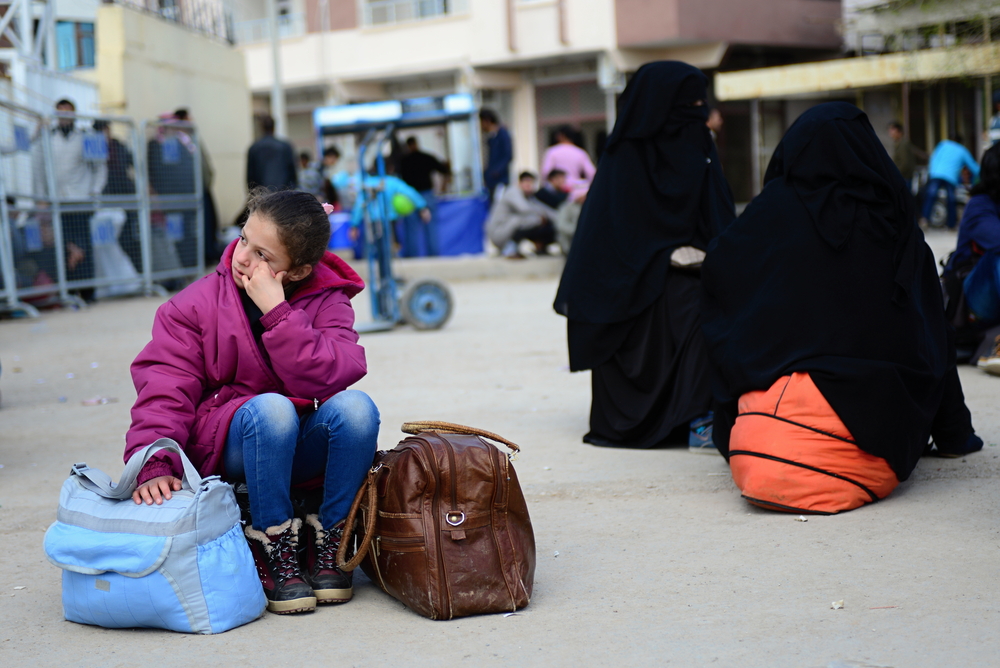by Laura Davis and Emily Shwake
Since the original outbreak of fighting in March of 2011, nearly 4 million Syrians have left their country, according to World Vision. As more are pushed out, refugees have overwhelmed neighboring countries and international agencies. Jewish organizations have joined in to help: IsraAID, the Jewish Coalition for Disaster Relief, and the Multifaith Alliance are some of the organizations that have responded with monetary aid and diplomatic support. Below is an overview of these organizations and their work on the Syrian refugee crisis.

*
One of the organizations accepting donations to assist Syrian refugees in Europe is IsraAID, based in Beer Sheva, Israel. The group’s mission is to help people in countries around the world overcome crises and provide support. Ben Cohen, a journalist who has extensively covered the Syrian civil war and Israeli relations for The Huffington Post, The Jerusalem Post and Moment, describes IsraAID as a “very effective and very lean Israeli aid organization actively taking part in sea rescues of refugees.” IsraAID’s founding director, Shachar Zahavi, believes that it is incumbent upon Israel and the Jewish people to help. “It’s like some sort of exodus because the situation is so horrible,” Zahavi says. “Hundreds of thousands are homeless and not able to cross borders, most of them come with barely anything on their backs.”
IsraAID has a team in Greece distributing journey kits with food, water and medical supplies to refugees, and teams setting up social programs in Germany to help people deal with the emotional toll of their ordeal. The organization is also in the process of setting up recharge stations so that people are able to charge cell phones and access the Internet on laptops to use a database in which they can get information on where to go, what to do next and see who has already come through.
Part of IsraAID’s funding has come from the Jewish Coalition for Syrian Refugees, which funds various aid organizations. Will Recant, Director of Jewish Coalition for Syrian Refugees, describes the coalition as the “honest broker” within the Jewish communities in more than 70 countries around the world. “It’s placed in a unique position of being able to connect Jewish community, international community, the UN and the government,” he says. The coalition—a 16-member subgroup of the Jewish Coalition for Disaster Relief that serves as an umbrella that collects funds, reviews proposals and votes on how to allocate its money—has raised more than $650,000 in aid. It is currently assisting in the setup of psychosocial programs in European countries by reviewing the half-dozen proposals it has already received from various humanitarian aid organizations. These programs would provide psychologists to those who need counseling to cope with displacement. Recant says that the coalition ensures that there is no overlap among the different organizations and that every issue is addressed with the appropriate aid. “We tell each of the organizations what the others are doing,” he said. “The members of the coalition coordinate their programs very directly.”
Recant says it isn’t currently cost-effective to transport clothing or medical donations or to put volunteers on the ground. The aid that they collect is distributed to humanitarian organizations working on the ground. From the Israel Trauma Coalition, IsraAID, UNICEF and the Jordan National Red Crescent Society, the organizations that the Coalition funds are wide-ranging and politically neutral.
*
A daughter of Holocaust survivors and once a refugee herself, Georgette Bennett responded to her personal feelings of obligation by initiating the Multifaith Alliance for Syrian Refugees in New York. The organization invites people of all faiths to unify in order to raise funds for relief organizations on the ground and to challenge leaders to make more of an invested effort in finding long-term solutions to the instability and the human rights violations in the area. “We found that there were actually Syrians and Israelis working together partnering to deliver aid,” Bennett says. “So here you have people who were able to rise above politics, above suspicion and mistrust, hatred even, in order to work together to address enormous human suffering. It is an ongoing process and these are people who are looking to the day after to form partnerships so we can get to a time where Syria and Israel are partners instead of enemies.”
Cohen—who has covered Bennett’s work in the past in addition to his general coverage of Syria—commended the working model of the organization. “It works on two levels: one is operational and one is diplomatic,” Cohen says. “Operationally, they have a Syrian and an Israeli in leadership positions and as far as I know, that is unprecedented, so that is a huge tribute to the work that Georgette has done, that she has been able to pull all that off.”
The group works with leaders from Middle Eastern, American and European governments to foster future stability in the region and work out the logistics of resettlement. Bennett has expressed frustration with the slow process of accepting refugee referrals, especially in the United States.
Cohen notes that Bennett’s work demonstrates a particularly Jewish quality in its response to the crisis. “We understand that we [as Jews] have a moral duty to help people who are fleeing the kinds of atrocities that we have experienced in the past, but we also understand that there is a political imperative to prevent the replication of Afghanistan-type situations across the Middle East, which is kind of what we have now in Syria and large parts of Iraq.”
The thousands of dollars donated, the varying methodologies adopted, and the unity of these organizations demonstrates their dedication to the refugees and to eliminating genocide. “You have people who were able to rise above politics above suspicion and mistrust, hatred even, in order to work together enormous human suffering,” says Bennett. “This is the great glimmer of hope that I see emerging out of this terrible tragedy.”


